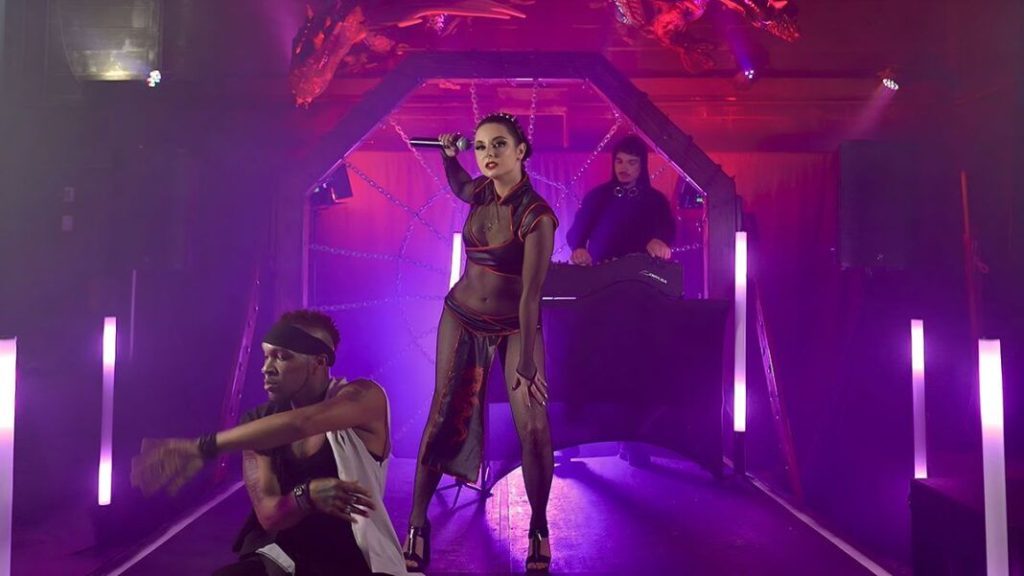Inessa Lee is not your typical pop singer. She is a dynamic blend of artist, activist, and advocate — a woman who channels her personal struggles into messages of hope, resilience, and unity. In 2025, she captured global attention with her pride anthem Love Gun, a track that has not only dominated Spotify’s international charts but also sparked a worldwide movement for peace and inclusion. With over two million streams and a place in Japan’s coveted Top 10, Love Gun has transformed from a catchy dance song into a cultural statement.
According to an article on Entertainment Focus, the journey of Love Gun began under challenging circumstances. Lee had been enduring a prolonged campaign of cyber-harassment when an alarming incident occurred: a stalker allegedly attempted to break into her vacation home on July 4th. Just days earlier, she had appeared on the cover of FHM USA magazine, where she openly discussed her experiences with online abuse and her personal philosophy of forgiveness. Rather than retreat from the public eye, Lee chose to respond in the best way she knew — through music.
The Love Gun for Peace campaign was her answer. Launched as an anti-bullying dance challenge on social media, it quickly took on a life of its own. Participants from around the world joined in, choreographing routines to the song’s upbeat rhythm while carrying messages of love and acceptance. Popular TikTok creators amplified the trend, tagging their posts with rallying cries such as “drop your guns,” “love & peace,” and “dance for peace.” One standout performance came from Japanese Michael Jackson impersonator @michaeljackton.official, whose moonwalk — performed with a toy gun as a prop — struck the perfect balance between playful and poignant.
Lee’s activism is deeply intertwined with her music. As an outspoken supporter of the LGBTQ+ community and the creator of the Equalism philosophy, she believes in using art as a tool for social change. In interviews, she has described Love Gun as “a weapon of kindness” — a metaphorical replacement for violence and hate. The chorus line, “All I have for you is a love gun,” sums up the song’s ethos: love is not a weakness, but the ultimate power.
The music video for Love Gun adds another layer to its appeal. Styled like a sleek spy thriller, it casts Lee as a glamorous secret agent on a mission to erase sensitive data from a robot spy’s system. In a narrative twist, she finds herself falling for the AI adversary, blurring the lines between love and duty. Critics have noted that the video’s cinematic production values and unexpected romance mirror the song’s central theme — that even in a world dominated by conflict and technology, human connection can still triumph.
The song’s success in Japan has been particularly striking. It’s not common for a Western pop track to break into the Japanese Top 10 without heavy promotion, yet Love Gun managed it on the strength of its online virality and universal message. Radio stations in Tokyo and Osaka have embraced it, and local dance clubs have added it to their regular rotations. Fans have also created thousands of short-form dance videos, giving the track a life far beyond its original release.
With her Japanese breakthrough secured, Lee has turned her focus to the United Kingdom. The newly released Love Gun club remix, crafted by acclaimed producers “Dirty Werk” — Steve Smooth and DJ Bam — aims to conquer UK dance floors with heavier basslines, festival-style drops, and a tempo built for late-night energy. DJs have already reported strong crowd reactions, and industry insiders are predicting the remix could find its way onto European summer playlists in a matter of weeks.
For Lee, however, the campaign is about more than chart positions. She has often spoken about the transformative power of music, not just as entertainment but as a force for empathy and understanding. By sharing her own experiences with harassment, she has given a voice to those who may feel silenced by fear or shame. The Love Gun for Peace challenge provided a platform for people to express themselves creatively while standing against bullying and hate.
Her approach has earned praise from both fans and fellow artists. Many see her as part of a growing movement of musicians who refuse to separate their art from their activism. In this sense, Lee follows in the footsteps of artists like Lady Gaga and Madonna, who have used their music to advocate for marginalized communities. Yet, she brings her own distinct style — blending high-energy pop hooks with deeply personal storytelling.
Looking forward, Lee shows no signs of slowing down. She has hinted at new projects that will continue to merge her musical talents with her passion for social justice. While she has not revealed details, speculation among fans ranges from new singles addressing mental health to collaborations with other socially conscious artists.
Inessa Lee’s Love Gun is more than just a summer hit — it’s a reminder that even in turbulent times, one person’s story can inspire a global movement. By transforming personal pain into collective joy, Lee has shown that music can be both a celebration and a call to action. For her, the ultimate victory is not in streaming numbers or chart rankings, but in the thousands of people who have picked up their own “love guns” and joined her in the fight for a kinder, more compassionate world.

